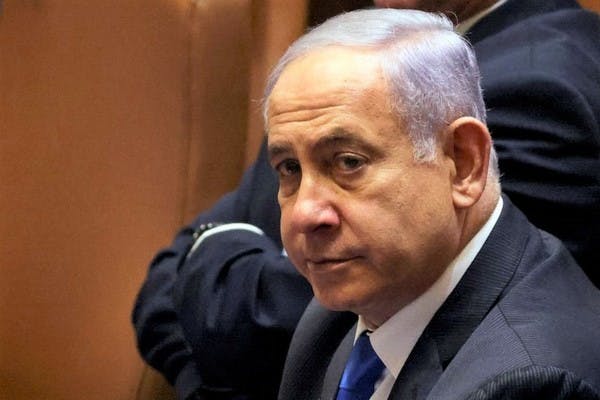Published: 10 February 2023
Last updated: 5 March 2024
Ahead of their first visit to Australia, a Jewish and an Arab activist tell ITTAY FLESCHER how they jointly inject hope into Israeli society.
Ahlam Kasim Ali grew up in Kfar Tur’an, an Arab village which she describes as one of the most “quiet and peaceful villages in Israel”.
But after the last municipal elections in 2018, there was increased fighting in her village and three men were killed. Ali, who had worked as a teacher, felt she had two choices: either to step aside and say, “I don’t care, I need to focus on my career” or to be part of the solution to stop the violence.
So, she became a peacebuilder. She is now co-CEO of the Ajyal movement, an Arab youth movement engaged in leadership training, educational aid and political campaigns.
She is also involved in Tzedek Centres, a peacebuilding organisation that does professional field work, community organising and activist training, combining the local and national levels. Their particular focus is on building shared Jewish-Arab power within Israel, strengthening citizens in the periphery, particularly in mixed cities.
She hopes that many alumni from the nine cities where there are Tzedek Centres across Israel who have completed their intensive leadership courses end up running as successful candidates in the 2023 municipal elections across Israel.
“I feel the only way to make a difference is through movements like Ajyal and Tzedek centres that make a change through empowering leaders to take action.”
Ali and fellow activist Amit Ben Ami, Partnerships Director for Tzedek Centres, are visiting Australia this month with the New Israel Fund Australia, which has recently funded the Ramle Tzedek Centre, the first Tzedek Centre in a mixed Arab-Jewish area.
“There is no going around the deeper work of transforming the society from bottom to top.”
Amit Ben Ami, Tzedek Centres
Ben Ami grew up in the Hashomer Hatzair Youth Movement. In 2015, a bunch of his friends from the movement were involved in the election campaign through an activist group called V15, which is similar to GetUp in Australia. They ran a huge campaign, supported by considerable funding and canvassing techniques adopted from the Obama campaign to increase voter turnout for left-wing parties. As the key activist in the Haifa branch of V15, he was sure they were going to win. Before the results came in, they had already organised an election party. In a shock result, it turned into a night of sadness as the votes came in quite clearly for a Netanyahu win.
Ben Ami was devastated but for him it was a moment of realisation that while elections are very important, one can’t put all efforts into campaigns. “There is no going around the deeper work of transforming the society from bottom to top,” he told The Jewish Independent.
Ben Ami observed a problem in Israeli society that he calls “learned political helplessness,” which many people in his camp feel towards the myriad problems Israel faces: the occupation, the economic situation, the current fight for democracy. In psychology, “learned helplessness” is a state that occurs after a person has experienced a stressful situation repeatedly. They come to believe that they are unable to control or change the situation, so they do not try — even when opportunities for change become available.
In the political context of Israel today, Ben Ami feels that learned helplessness is widespread, leading to a situation where no one feels they can make even the smallest change, and many are highly alienated from the political system. He notes that, although polls continue to show the majority of Israelis support the two-state solution, people have failed to organise to make this happen.
On the other hand, a growing number of people in Israel prefer a situation of Jewish supremacy in law and funding allocation, rather than equality embedded in the idea of shared society, meaning the pair have a huge challenge in front of them.
Ali says experience of success is important to overcoming learned helplessness. She tells a story of a leadership group that graduated through one of the Tzedek Centres in Ramle, a mixed Arab-Jewish city that in May 2021 was a focal point of rioting and frequent tensions between Arabs and Religious Zionists.
After they graduated, the group began a campaign to lobby the Ramle municipality into translating all their materials regarding social and educational opportunities into Arabic. They had only been in Hebrew up until that time. “Through an initiative where we work on a shared objective, we don’t see each other as Arabs and Jews, but rather as a team that works together for a common goal, to build playgrounds for children, open more kindergartens, build a bike lane and other such social initiatives that benefit the common good,” she said. After activists have one small experience of success, the learned helpless gradually begins to dissipate, she said.
Of the nine Tzedek Centres, eight are in Jewish areas but establishing their work in Arab and mixed cities is an important goal. NIF executive director Liam Getreu said supporting a Tzedek Centre in Ramle was an important contribution to building a better society.
“Jewish-Arab partnership inside Israel is the best answer we have to the extremism, division and racism that has so far characterised the new government. In Ahlam and Amit we see two people who are providing the hope for a better future we all want to see, for Jews and Palestinians inside Israel.
“At such an important time in Israel we’re thrilled to be hosting two activists deeply embedded in the work to promote and protect Israel’s democracy,” Getreu said.
Top photo: Ahlam Kasim Ali (left) and Amit Ben Ami (Ittay Flescher)



